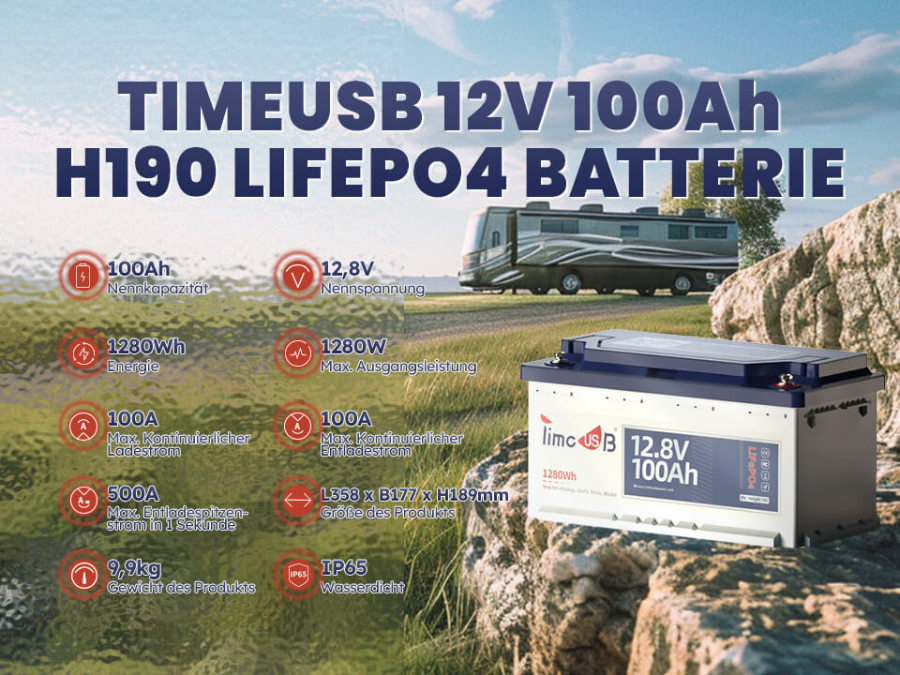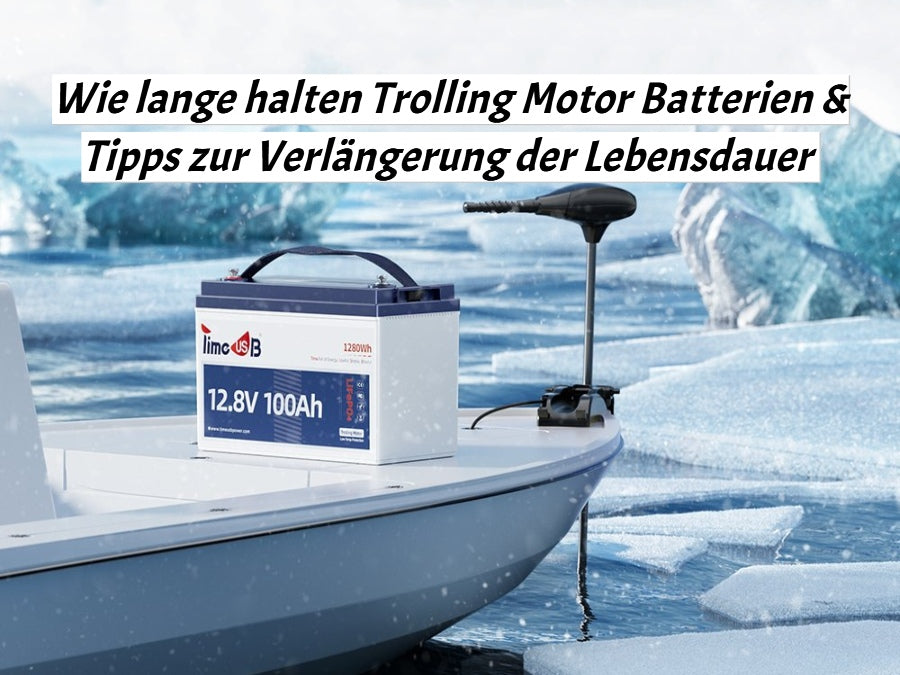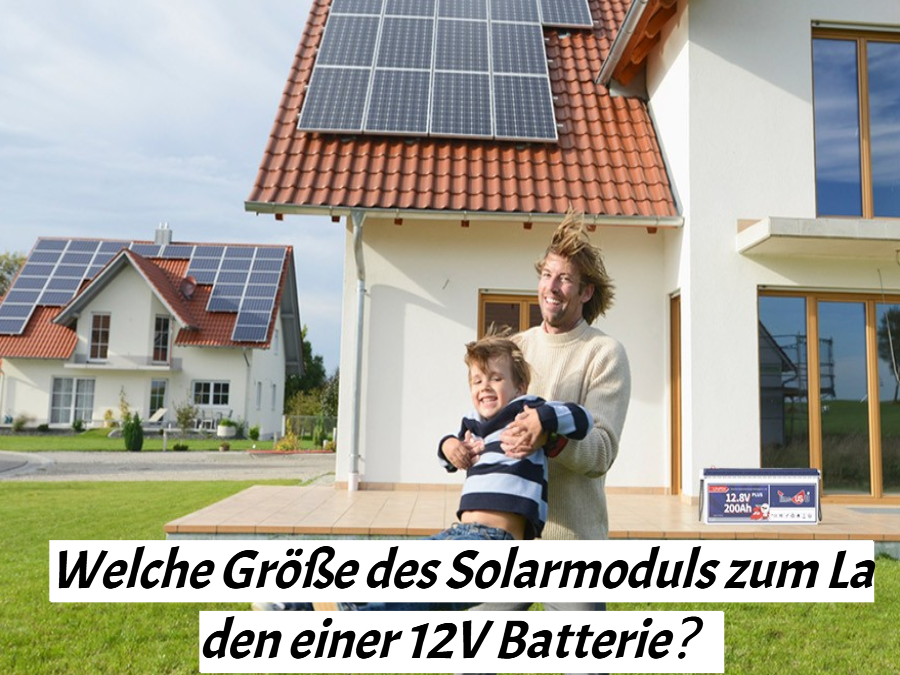Why is my RV battery not charging? Problems & Solutions

When your RV is not connected to shore power, your RV batteries provide power to the lights and certain appliances, such as the water pump. RV electrical systems are designed to charge the batteries when connected to shore power.
In most towable RVs, the batteries are charged when the 7-pin connector is plugged into your tow vehicle and its engine is running. In many RVs, the electrical system uses the generator to charge the RV battery while the engine is running. Check your owner's manual to see if this applies to your RV.
This is how these systems should work. But what happens if your RV battery isn't charging?
Let's explore some common problems and troubleshooting tips to help you determine the best course of action.
Common signs of possible battery problems
RV batteries typically last between 2 and 5 years or more, depending on factors such as battery type, depth of discharge, ambient temperature and quality of maintenance.
Lithium battery motorhome is designed for a complete discharge, while lead batteries should remain less than 50% discharged.
A fully charged lead acid battery should read between 12.4 and 12.8 volts when measured with a digital multimeter. If the charge drops below 11.6 volts DC, your RV's 12 volt electrical devices will begin to fail. Read the battery voltage guide for more detailed information.
Different battery chemistries have different voltage ratings. For example, lithium-ion batteries reach 14.1 volts DC, while lithium iron phosphate batteries peak at 14.6 volts DC. These voltage differences help modern RV converters/chargers identify the type of battery being used.
A notice: Not all battery chemistries are suitable for all conditions, locations, uses, or charge rates. Use caution when replacing your existing RV battery with a newer one with a different chemistry. Additional modifications to the system or placement may be required for safe and reliable operation.
Signs that your battery is not working properly:
- Dim or flickering light: If your RV lights are dimming or flickering, it could be a sign of a weak battery.
- Slow pull-out operation: Difficulty extending or retracting the drawers may indicate low battery power.
- Heating does not ignite: A weak battery may not provide enough power to ignite the heater.
- Slow operation of the hydraulic stabilizing supports: If the supports are running slower than usual, the battery may be the problem.
- Constant tripping of circuit breakers or blowing of fuses: Common electrical problems may indicate battery problems.
- Malfunction of automatic leveling supports: These may lock in error mode or lose zero calibration due to insufficient battery power.
- Increased charging frequency: If the battery needs to be charged more often than usual, this may indicate a loss of battery capacity.
By recognizing these signs, you can take proactive steps to fix potential battery problems before they become bigger issues. Regular maintenance and timely replacement of your RV battery can ensure a smooth, hassle-free camping experience.
If your batteries show signs of needing replacement, upgrading to RV batteries a good choice.
The Timeusb 12V 100Ah H190 LiFePO4 underseat battery has a 100A BMS, which provides protection against overcharge, overdischarge, overcurrent, short circuit and high temperature to ensure safety. Over 4000 life cycles can last more than 10 years.

Common problems and troubleshooting tips when your RV battery won't charge
- battery connections
- Problem: Loose or corroded battery connectors can cause your batteries to not charge properly.
- Solution: Check the battery terminals for signs of corrosion or looseness. Clean the terminals and make sure all connections are tight and secure.
- Blown fuses or tripped circuit breakers
- Problem: A blown fuse or tripped circuit breaker can interrupt the charging process.
- Solution: Check your RV's fuse box and circuit breakers. Replace any blown fuses and reset any tripped circuit breakers.
- Faulty converter or inverter
- Problem: The converter (in towable RVs) or inverter (in motor homes) may fail and prevent the batteries from charging.
- Solution: Test the converter or inverter to see if it is working properly. If not, it may need to be repaired or replaced.
- problems with the alternator
- Problem: In motorhomes, a faulty alternator can prevent the motorhome battery from charging.
- Solution: Have the alternator tested to make sure it is working properly. If it is faulty, it will need to be replaced.
- age and condition of the battery
- Problem: Over time, batteries lose their ability to hold a charge.
- Solution: Test the batteries to see if they are still in good condition. If they are old or damaged, consider replacing them with new ones. Upgrading to a lithium battery can provide a longer lifespan and higher energy density.
- problems with shore power
- Problem: If your RV won't charge when connected to shore power, the problem may be with the shore power source.
- Solution: Check the shore power socket for problems. Try connecting to a different shore power source to see if the problem persists.
- Parasitic discharges
- Problem: Some appliances in your RV may consume power even when they appear to be turned off, causing parasitic discharges.
- Solution: Identify and eliminate unnecessary power drains.Consider installing a battery disconnect switch to turn off power when the RV is not in use.
By systematically checking these common problems, you can identify and fix the problem that your RV battery is not charging. If you are still experiencing problems, it may be time to consult a professional technician to diagnose and fix the problem.
Why is my RV inverter not charging the battery?
If your RV inverter is not charging the battery, there could be several reasons. Here are some common causes and troubleshooting tips to help you identify and resolve the issue:
Common causes and solutions
- Faulty converter
- Problem: The inverter may not be working properly.
- Solution: Test the inverter to see if it is working properly. If not, it may need to be repaired or replaced. You may consider integrating an MPPT solar charge controller or a DC-DC charger to supplement your charging needs.
- Tripped circuit breaker or blown fuse
- Problem: A tripped circuit breaker or blown fuse can interrupt the charging process.
- Solution: Check the fuse box and circuit breakers in your RV. Replace any blown fuses and reset any tripped circuit breakers.
- Loose or corroded connections
- Problem: Loose or corroded connections can prevent the battery from charging properly.
- Solution: Check all connections between the inverter and the battery. Clean and tighten any loose or corroded connections.
- battery problems
- Problem: The battery itself may be defective or damaged.
- Solution: Test the battery to determine its condition. If it does not hold a charge or is old, you should replace it.
- Incorrect inverter settings
- Problem: The inverter may not be set to the correct charging mode or voltage.
- Solution: Check the settings on the inverter and make sure they meet the requirements for your battery type.
- wiring problems
- Problem: Damaged or incorrect wiring can affect the charging process.
- Solution: Check the wiring between the inverter and the battery for damage or improper connections. Repair or replace if necessary.
- problems with the power supply
- Problem: An overload or a problem with the power supply can affect the function of the inverter.
- Solution: Make sure your RV is connected to a stable power source. Watch for signs of overload or power problems.
- Age and condition of the inverter
- Problem: Older inverters may not work as efficiently as newer models.
- Solution: If your inverter is old or has been in use for many years, it may be time for an upgrade.
troubleshooting steps
Check power source: Make sure your RV is properly connected to shore power and that the power source is working properly.
Check inverter: Look for visible signs of damage or malfunction.
Check battery voltage: Measure the battery voltage to see if it is within the expected range.
Test converter output: Measure the output voltage of the converter to make sure it is delivering the correct voltage to the battery.
Consult the manual: For specific troubleshooting steps for your inverter model, refer to your RV owner's manual.
If you have tried these steps and the problem persists, it may be time to consult a professional RV technician to diagnose and fix the problem.
Why is my RV battery not charging when towing?
Your tow vehicle may be able to charge your RV battery through the electrical connection. This is usually the case with trailers and tow vehicles that use a 7-pin connector with a special charging cable.
Tip: If your port uses a 4-pin connector, your setup is not designed to charge your RV battery while towing.
To check if your battery is charging, use a digital multimeter set to DC voltage. When connected to your tow vehicle, the battery voltage should be above 12.8 volts, indicating an incoming charge via the 7-pin connector. If the reading is lower, it's time to troubleshoot.
troubleshooting steps
- Check the power supply of the towing vehicle
Step 1: Start your tow vehicle.
Step 2: Place the black test lead of the multimeter to the ground probe and the red test lead to the battery current probe of the 7-pin connector.
Step 3: Check the voltage at the plug. If there is no voltage, check the fuses under the hood of your tow vehicle.
- Check for wiring problems
Step 1: If you have voltage at the connector but the battery still shows less than 12.8 volts, there may be a wiring problem.
Step 2: Look for battery solenoids in the line that might be causing the problem.
Why doesn't my RV battery hold a charge?
Over-discharging your RV battery is the most common reason it won't hold a charge. Most RV batteries should not be discharged beyond 50% of their capacity before recharging. Other factors such as age, incorrect charging voltage and incorrect charging methods can also affect battery performance.
troubleshooting steps
- Check the date stamp
Step 1: Look for the manufacturing date on your battery.
Step 2: Replace batteries that are older than six years.
- Ensure correct charging voltage and method
Step 1: Use a charger that meets the voltage specifications of your battery manufacturer.
Step 2: Avoid using aftermarket battery chargers (e.g. car chargers) that do not meet the correct specifications.
By following these troubleshooting steps, you can identify and fix problems with your RV battery not charging when towing or not holding a charge.
Conclusion
Trying to figure out why your RV battery isn't charging can be daunting, but determining the root cause is critical to a smooth and enjoyable camping experience. Whether your RV battery isn't charging while connected to shore power, your inverter, or your tow vehicle, fixing common problems like faulty converters, loose connections, or incorrect settings can make a significant difference.
By following the troubleshooting steps and solutions provided, you can ensure that your RV's electrical systems are working properly so you can focus on enjoying your adventures. If problems persist, it may be necessary to consult a professional technician to resolve more complex issues and keep your RV running smoothly.




